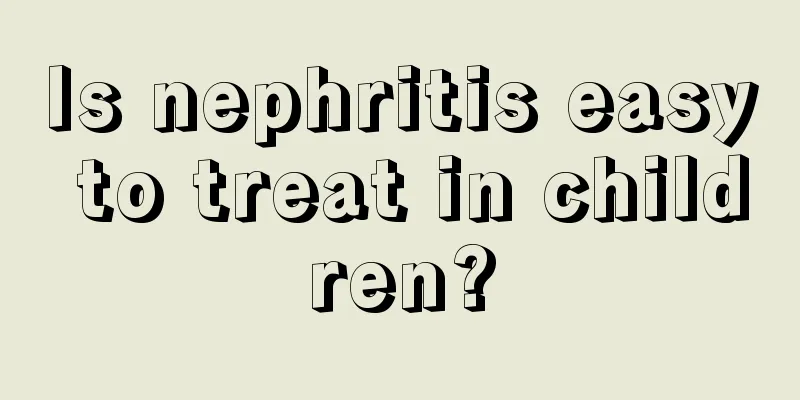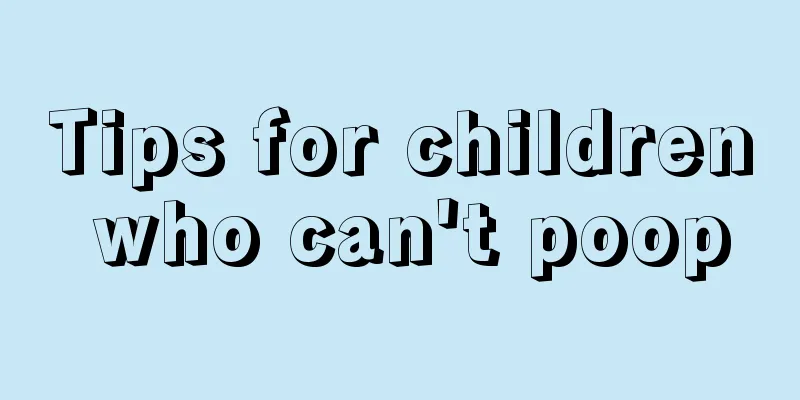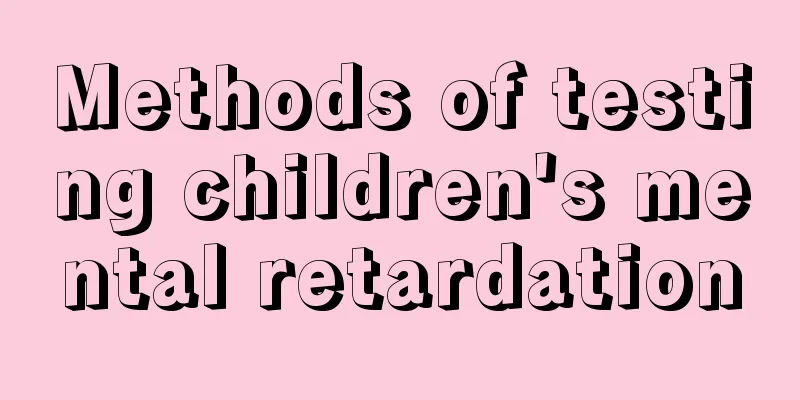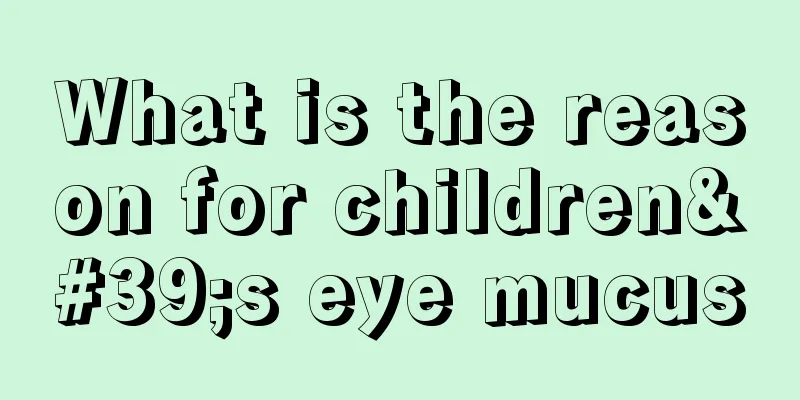Is nephritis easy to treat in children?

|
When a child gets nephritis, parents are most worried. Nephritis is a relatively serious disease. For children, this disease can be said to be mild or severe. The more serious ones will seriously affect the child's health. We should pay attention to timely treatment and strengthen good care. As parents, we should pay attention to this aspect. Children should not be too tired, their diet should be light, etc. Is nephritis easy to treat in children? Parents must be distressed and anxious when their children suffer from nephritis. Recovery from this disease is not a quick process and requires long-term patient conditioning and care for the child. What should we pay attention to in our daily life? 1. Keep warm. Be careful not to let your child catch cold, as colds will aggravate the condition and even cause recurrence. 2. Children should not eat foods high in salt. It is very important to eat less salt in the diet for children whose blood pressure has not yet returned to normal. However, meals without salt will affect appetite, so a low-salt diet is more appropriate. After the edema and high blood pressure disappear, you can improve your normal diet, but it should also be light and not too salty. Steamed buns and soda crackers also contain sodium, so it is best not to give them to children. You can let your children eat some fresh vegetables and fruits to supplement vitamins in the body. 3. Children should not be overworked. Parents should pay special attention to arranging their children's daily schedule and try to get enough rest. 4. Children’s clothes should not be worn for a long time without being changed. Infection is often the cause of relapse of kidney disease. Take a bath and change clothes frequently to keep your skin clean and prevent skin infections. 5. Do not reduce the dosage or stop taking the medicine at will. To treat kidney disease, most patients need to take hormone drugs. Sick children taking hormones must follow the doctor's guidance and gradually reduce the dosage until they stop taking the medication as their condition improves. Parents should urge their children to take medicines on time and in the appropriate dosage. They must not reduce the dosage or stop taking the medicines at will to avoid recurrence of the disease. Symptoms of nephritis in children There are often precursor infections such as acute tonsillitis and skin pustulosis 1-4 weeks before the onset of the disease. Symptoms begin with low fever, cough, dizziness, nausea, vomiting, loss of appetite, fatigue, etc. Hematuria and edema are the diagnostic features of this disease. In the early stage of the disease, the child's urine volume decreases significantly, edema worsens, breathing becomes rapid, heart rate increases, and irritability occurs. Then the condition may deteriorate rapidly, with difficulty breathing, inability to lie flat, pale complexion, cold limbs, frequent coughing, and pink foamy sputum, indicating that the child has heart failure. If the child experiences severe dizziness, nausea, vomiting, and transient blindness in the early stages of the disease, or in severe cases, sudden convulsions and coma, these are manifestations of hypertensive encephalopathy. Some severe cases develop acute renal failure in the early stages. |
<<: What is the cause of the child's swollen face?
>>: Is teenage depression treatable?
Recommend
Is it normal for a newborn to drool?
After birth, babies will generally drool more or ...
Causes of secretory otitis media in children
We know that children's immune function is no...
What to do if your child is not concentrating
We all know that children rely on their curiosity...
How to reduce fever when baby's temperature is 37.6
As a mother, the most heart-wrenching thing is wh...
Why does the occipital bone protrude at the back of the baby's head?
The heads of newborns appear relatively large, wh...
What is the reason for the child's fever not going away?
In our daily life, we will find that some babies ...
Does wet earwax in a newborn baby indicate body odor?
Many diseases are related to each other, and when...
Intestinal malrotation in the newborn
Giving your baby a health check is an essential t...
Children have a fever and high mononuclear cell count
We all know that the normal monocyte ratio is 3-8...
Black marks on baby's face
I believe everyone thinks that their baby is an a...
Junior high school summer vacation schedule
Developing good work and rest habits is of great ...
Is it good for children to take a bath when they catch a cold in autumn?
Is it good for children to take a bath if they ha...
What causes children to sweat while sleeping?
Children often sweat when sleeping at night, but ...
How old can a baby sit in a stroller?
Many mothers feel it is inconvenient to push a ba...
Treatment of molluscum contagiosum in children
The treatment of molluscum contagiosum in childre...









